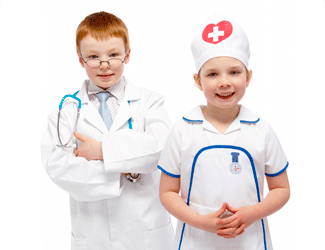Our CF Center is accredited by the Cystic Fibrosis Foundation (CFF), which ensures that your child receives expert, high-quality care in line with CFF guidelines. As an accredited center, we offer:
Access to a Comprehensive Team of Experts
Your child’s team will include doctors who specialize in pulmonology, endocrinology, gastroenterology, and infectious diseases. The team will also include a CF nurse coordinator, nutritionists, respiratory therapists, and physical therapists as well as licensed clinical social workers and psychologists.
Access to Clinical Trials
People in both our pediatric and adult centers who meet certain qualifications can participate in trials of new cystic fibrosis treatments or observational studies monitoring the impact of some of these treatments.
Seamless Transition to Adult Care
Our comprehensive program includes helping young adults begin taking responsibility for their own care. We start preparing for the transition to our Adult Cystic Fibrosis Center when your child reaches age 16, providing support and guidance as they begin to manage home treatments, monitor their symptoms, and learn when to seek help from their doctor.
Ongoing Care and Support
Our licensed clinical social workers guide you and your family through the medical system and coordinate the health services your child needs. They can help you communicate with other members of the care team to ensure that the needs of your child and family are being met. They can provide support, help you work with insurance providers, connect you with resources, and help you manage details related to your child’s care. Your case manager coordinates your child’s transition from hospital to home.




